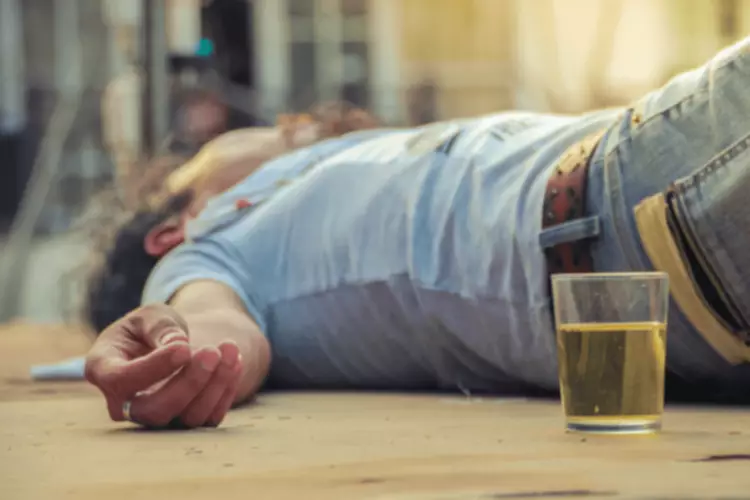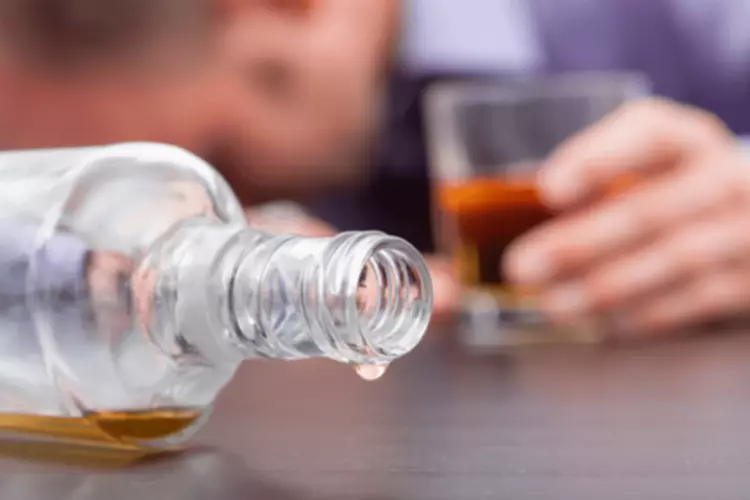Alcohol Poisoning: Signs, Symptoms and Treatment

Wine alcohol was first learned to get in the 6th – 7th century AD in the Arab countries, where it was called “al–koél “, which means intoxicating. In Europe, the production of alcohol became a branch of the food industry already in the late Middle Ages. The production and consumption of spirits increased significantly in the 18th – 19th centuries.
Overview
It doesn’t matter if you drink expensive wine or cheap vodka – both contain alcohol, which is poisonous to the body. Alcohol has a chemical name of ethanol, which is a drug that depresses the activity of the central nervous system and, in particular, the brain. Alcohol comes in many forms and strengths, from beers or wines to spirits or medical alcohol. As someone drinks, the effects start to take place and can cause personality changes, dizziness, nausea, vomiting, and tiredness.
In moderate quantities, alcohol causes a slight feeling of euphoria in a person, high spirits, and relaxation. This is why alcohol drinks are so popular. With an increase in the dose of alcohol, there is a loss of the adequacy of perception, self-control disappears. And the loss of self-control entails excessive consumption of alcoholic beverages, which becomes poison for a person. Binge drinking can lead to blackouts, hangovers, missing school or work, alcohol poisoning, and even death.
Having a drink itself is not usually a problem, but when taken in excess, it can lead to alcohol poisoning. The amount of alcohol required for the appearance of signs of poisoning is strictly individual. In some people, severe alcohol poisoning can occur even with a small amount of alcohol. A low-drinker can be strongly influenced by the amount of alcohol that has little effect on a chronic alcoholic. For a child, only one sip of alcoholic beverages is a serious danger.


Take back control of your life and start on the road to recovery now.
Symptoms and Consequences
Symptoms of alcohol poisoning are euphoria or vice versa, a depressive state, confusion, and even passing out develop after taking about 16 ounces of whiskey, vodka, or other strong drinks. The individual will have slurred speech, difficulty executing simple commands, unsteady walking, blurring vision or double vision, and might also experience seizures. However, the degree of its impact on the human body is individual and depends on gender, age, state of health of a person, and individual susceptibility to alcohol.
Alcohol poisoning is a medical emergency. Thus, it is important to know warning signs and get help immediately if you see them. These can be remembered with an abbreviation C.U.P.S.
- Cold, clammy skin
- Unresponsive
- Puking/vomiting
- Slow, shallow breathing (less than 10 breaths a minute).
In severe alcohol poisoning cases, the nervous system is paralyzed, and the person may:
- have a heart failure
- stop breathing
- fall into a coma.
If the person stops breathing, perform CPR. An alcoholic coma can occur when the amount of alcohol in the blood exceeds 0.3 percent. With hypertension or atherosclerosis, large doses of alcohol sometimes lead to stroke or myocardial infarction.
In addition to alcohol itself, the product of its decay – acetaldehyde – has a toxic effect on the body. This substance, entering into various chemical reactions in the body, forms alkaloids, the effect of which on the body is similar to strong drugs. If you do not provide timely assistance to a person with severe alcohol intoxication, a fatal outcome is possible.

First Aid and Treatment
If you notice these signs of alcohol poisoning, stay with the person and try to keep the conscious by talking to them and keeping them awake. The gag reflex of a person with alcohol poisoning does not work properly and may choke. On that note, do not provoke vomiting. Roll them on their side, so if they do vomit, they are less likely to choke.
Also, don’t send the person to take a cold shower. Alcohol lowers body temperature, so a cold shower can further contribute to hypothermia. Obviously, one should never let the individual with alcohol poisoning sings to keep drinking! If you think somebody may have alcohol poisoning, do not wait and save a life by calling 911.
In the case of alcohol poisoning, it is strictly forbidden to take any medications on your own. The fact is that many medications interact with alcohol and can cause toxic reactions. It is also not recommended to take medications for vomiting. Note that some drugs for a headache might also interact with alcohol and cause a toxic. Thus, consult with a doctor what can be used.
Stomach pump and sorbents are usually used as first aid. These are medications that absorb toxins that have entered the intestines (in this case, alcohol) before they are absorbed into the blood. These drugs will speed up the removal of ethanol from the body. Remember, do not try to treat yourself or someone suffering from alcohol poisoning on your own. Alcohol in combination with pills can both slow down the effectiveness of drugs and increase it many times or even lead to unexpected consequences.

This can be a difficult journey, but you don’t have to go it alone. Let us be your guide and provide you the environment needed to regain control of your life and begin the path to recovery.
Prevention
The obvious way to avoid alcohol poisoning is not to drink at all. If you do decide to drink, here are a few more ways to avoid alcohol poisoning:
- In order to prevent alcohol poisoning, one should not abuse alcoholic beverages. This might be very hard for someone, especially if there is peer pressure to drink more. You have to learn how to say no.
- Do not drink alcohol on an empty stomach. When drinking alcohol, you must combine it with food. For example, Dry red and white wines go well with a protein food, while beer and ale are best consumed with starches or cooked vegetables.
- You should choose alcohol drinks wisely – do not drink cheap, low-quality alcohol. Beware that fake or illegal alcohol that poses risks to people’s health because it contains potentially dangerous chemicals can be found in unreputable places, although it is relatively rare.
Also, one should keep in mind that cocktails can contain more than one serving of alcohol or take longer to process, affecting the body more seriously than pure booze.




